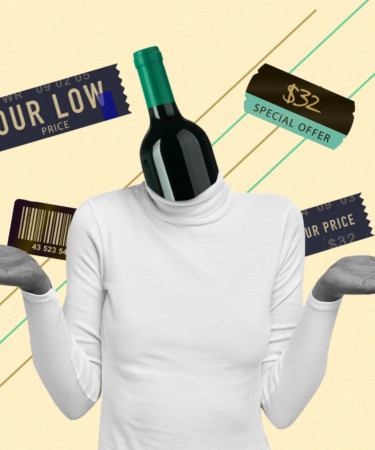If you’re walking into your local wine shop but you’re not quite sure how to pick something you’re going to love, I want to congratulate you. You’ve already made the biggest and most important step — you’ve chosen to support a local wine shop that has nuanced palates in mind and works to deliver a broad range of options. Local wine retail shops have a huge advantage over your supermarket or liquor store because each bottle is chosen by a professional who truly loves wine and bases their choices on what will make you happy — as long as you tell them what you’re looking for. As a sommelier, wine educator, and former wine shop employee, here are the questions that make me the happiest to hear:
Do Ask
What pairs best with dinner?
Every bottle of wine is different. From the grapes used, acidity levels, sugar levels, and regional intricacies, pairing a wine with food becomes an art in itself. Just because you like Cabernet Sauvignon doesn’t mean it’ll mesh beautifully with that tilapia you’re planning for dinner. Start out the conversation by painting a picture to the wine staff — it’ll help them show you a bottle that stands up to your dinner without overpowering it.
I usually drink wine made with this grape — what’s something similar?
The world of wine is incredibly diverse, with over 5,000 grape varieties producing myriad flavors. Why not try something similar, but new to you? This question helps wine staff understand your preferences and how to open up your wine world without leading you too far out of your comfort zone just yet.
Which winemakers seem like they’re focused on nature and sustainability?
Wine is an agricultural product, and supporting a winemaker who is connected to nature and sustainability isn’t just about your values, it’s also about your palate! Winemakers who have a connection to the land and simplicity of winemaking will often not overpower their wines with chemical additives like coloring or flavoring agents. They’ll also be more likely to grow organically in the vineyard and support a healthy soil system. This all comes together in a delicious wine with a lot of punch.
What has been inspiring for you locally?
European wines are well known around the world, but the United States also has a rich and diverse wine industry. Wine is made in all 50 states, and your neighborhood wine shop should have some great examples of the quality winemaking local artisan makers produce. Shop employees often get to taste the bottles coming in, and if you tell them you’re interested in exploring American offerings, they’re likely to recommend a bottle that will inspire you to seek out more local wines.
Here are some of my favorite fruits and flavors. Which wine should I choose?
The taste of wine is completely subjective — every person has a different palate, colored with the memories of flavors we experienced growing up, and what we eat, drink, and smell today. However, some flavors do stand out in certain bottles. If raspberries and mangos are your favorite fruits, let the shop staff know; likewise, if certain flavors really aren’t your taste, feel free to speak up. They can try to make a match.
What would you drink if you’re feeling like I am right now?
The experience of drinking wine isn’t all about the taste. It’s also about the situation. If you’re feeling like you’ve had a hard day and need a big hug, maybe a Spanish Tempranillo would be fitting. If you’re throwing a beach-side bash for your birthday and are happy as can be, a racy chilled Txakolina would be perfect. The situation matters, open up with the wine staff, and you’ll get a more nuanced recommendation.
Asking these questions will get you customized recommendations that open your eyes to the deeper aspect of wine beyond sugar and acidity levels, connecting you with the winemaker, the region, and the culture of this versatile beverage.
I have $25 to spend. Which bottles feel like the best quality for the price?
Being honest and up front with how much you’re able to spend is going to get the budget conversation out of the way immediately, and help you feel like you’re making the right choice for your wallet. It’ll also narrow down the selection for the shop employee, giving them a better shot at giving you the right recommendation.
Don’t Ask
Which wines are dry?
In wine lingo, “dry” means an absence of residual sugar. In today’s American market, most wines are dry, with little to no residual sugar present — especially wines made with minimal intervention. When you ask a wine shop for a dry wine, they’ll likely point to the majority of wines in their inventory. This won’t get you closer to a wine you’ll love, and is a question that doesn’t really have a good answer. If you prefer wines that don’t have a sweet-fruit flavor, try asking for something earthy instead.
Can I get a bottle in the $50 range?
I want to shout it from the rooftops: Just because a bottle of wine is expensive doesn’t mean it will be good! The same goes for the opposite. An inexpensive bottle may turn out to be a fantastic wine. Price doesn’t guarantee quality. I’ve had incredible bottles of wine under $15, and bottles over $75 that have fallen flat.
